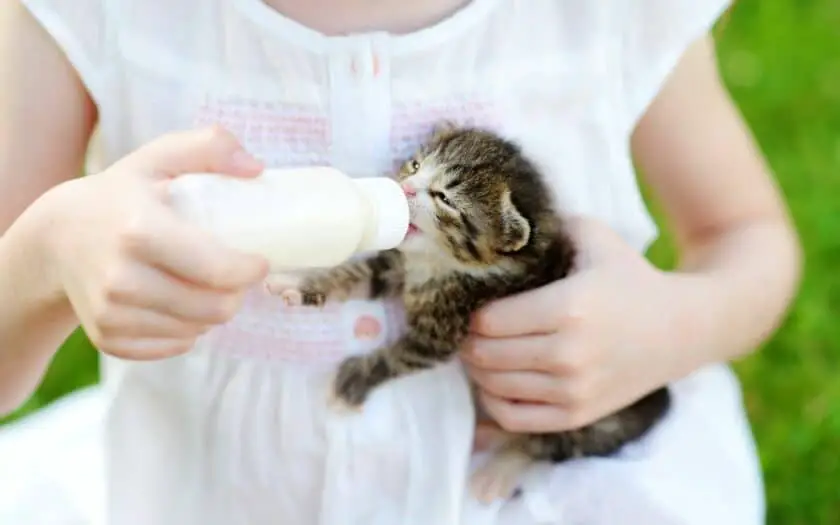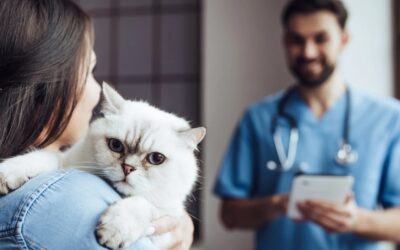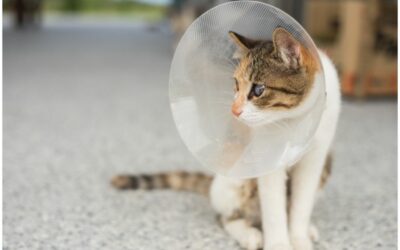Young animals grow at an incredible rate. When a young kitten is healthy and thriving, it can be exciting to watch that cute little ball of fur growing bigger by the day! On the other side of the medallion, it’s quite disheartening to see that they’re not gaining any weight or size, despite your best possible care and intentions.
So what could be going wrong? Why did your kitten or adult cat stop growing? Read on to discover why cats remain small, and more importantly: what you can do about it.
When do cats stop growing?
To understand what is considered normal growth, we need to know at what age a healthy cat is expected to stop growing. Every cat has its own unique set of genes and journey through life, but there are general guidelines1 that will give you a clue as to how big your cat should be by the time they enter the life stages of adult and senior.
Kittens will typically have a huge growth spurt at the start of their life, which usually lasts about 8 weeks after birth. This is a period of rapid development, where lack of growth is easy to detect and quite concerning. If you weigh your kitten every day, you should be able to notice a small daily increase. If this is not the case, there could be something wrong. We have listed some possible causes further down in this article, so be sure to read those.
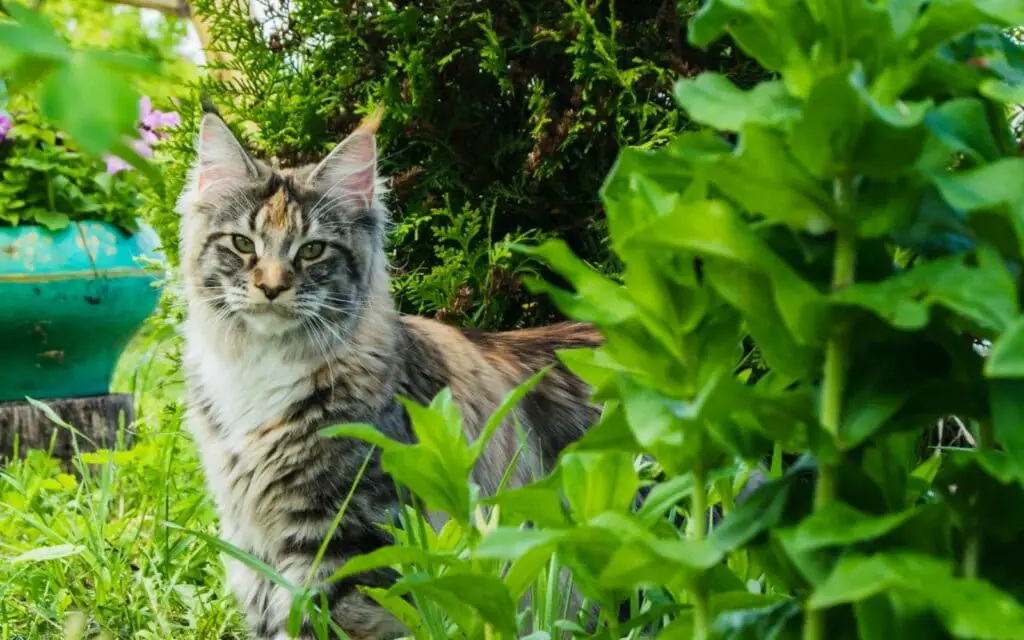
After those first 8 weeks, a kitten will continue to grow (albeit at a slower rate) until the age of about 12 to 16 months. For many breeds, visible growth is completed now. But this is not always the case! Bigger cats such as Maine Coon and Ragdoll can take multiple years to reach their full adult size.
Even after visible growth has come to a halt, the organs are still growing on the inside. The brain, for instance, will continue to develop for years as cats mature. But outward growth will have slowed to a point where it’s almost impossible to spot a problem by an untrained eye. This is what makes it difficult to determine.
Why is my cat so small? – Possible solutions for stunted growth
If a professional has determined that your cat or kitten is not growing in a healthy manner, you’ll want to tackle the underlying issue as soon as possible. Beyond natural variance in breed and posture, there are three main factors that can stunt a cat’s growth. If you suspect your kitten or young cat is too small or stopped growing as expected during the first years (with special emphasis on the first 8 weeks, for reasons discussed earlier), here are the three main causes to rule out:
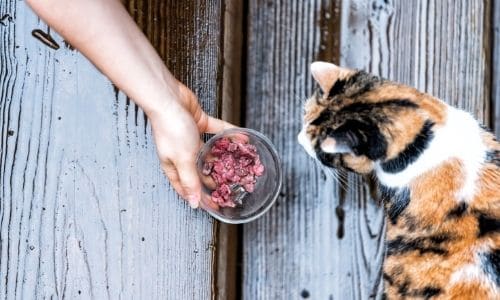
A) Malnutrition
One of the most common causes for stunted growth is a lack of sufficient building blocks to support growth. This doesn’t necessarily mean that you’re not feeding your cat enough food. It can also mean that, although you’re offering the right portions, they still don’t contain the right amounts of vital nutrients.
Home-cooked meals and raw meat diets tend to be unbalanced. If a diet is deficient in just a single nutrient, that can be enough to stunt growth. It is therefore extremely important to make sure your cat’s diet contains everything they need.
B) Reduced absorption
Stunted growth may also occur as a result of gut problems, which prevent the body from absorbing essential nutrients. One of the most common causes of reduced absorption is worm infestation, because the worms can irritate the gut and live off the nutrients.
Reduced absorption can be caused by plenty of other things. For example, if your cat has persistent diarrhea, the food they eat will often move through their guts too quickly for it to be effectively absorbed. Persistent inflammation of the gut can cause a type of scarring that stops the cells in the gut from absorbing nutrients, Certain types of cancer can also affect the gut and reduce its absorbing ability.
C) Problems processing nutrients
Even if the nutrients are absorbed properly in the gut, the organs of the body need to be able to use them for growth and repair. There are many medical conditions that interfere with this. Since the liver plays a big part in using nutrients for growth and cellulair repair, conditions that affect liver function can cause stunted growth. These include abnormalities in the development of the liver from birth, as well as liver infections and inflammation.
Hormonal conditions like pituitary dwarfism and hyperthyroidism can also affect growth, but are thankfully very rare. Hyperthyroidism tends to commonly affect older cats. If you have a senior cat that is thin and struggling to gain weight no matter what you feed them, they might be suffering from an overactive thyroid.
These three are the main categories for a vet to investigate, but many other illnesses could cause a lack of weight gain or weight loss due to their effect on appetite. Illnesses that cause your cat to eat less could also cause symptoms like vomiting or diarrhea.
Remember: If you think your cat might have stopped growing, the best way to rule out possible causes is by taking them to a veterinarian.
What other symptoms might I see if my cat isn’t growing?
The main thing to look out for in kittens and young cats is an obvious reduction in their appetite. You might also see symptoms like vomiting or diarrhea. However, if you have an older cat who is losing or failing to gain weight, there are some other health conditions it could be, and these can cause a variety of symptoms. For instance, if diabetes were the cause, you might notice an increase in their thirst and how often they pass urine. If they have an overactive thyroid gland, they might be ravenously hungry, extra vocal or hyperactive. Some cats with hyperthyroidism even develop heart problems that can cause a racing heart rate and breathing distress.

What can I do before booking an appointment?
If you’ve ruled out genetics as the cause, the first thing to do is double-check that your cat or kitten is getting the right type of food in proper amounts. If you need some help, check our nutritional guidelines to get an idea of the type and amount of food that kittens and adult cats should be eating. Cat food also tends to come with these instructions on the packaging, but this is not always the case.
Second, if your cat has not been wormed recently, make sure that they get treatment for worms and other parasites. Don’t buy such products off the internet! Instead, call your vet to get a veterinary-approved product. Kittens should usually be wormed every 2-4 weeks, depending on their age, whilst adult cats are usually wormed every 1-6 months, depending on their lifestyle. Whilst worms rarely cause symptoms in adult cats, they can overwhelm the tiny intestines of kittens and cause malnutrition.
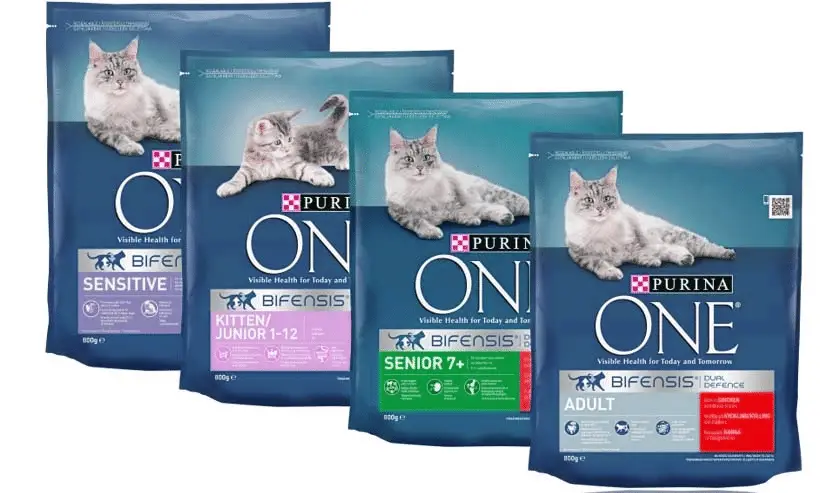
Third, if you are feeding a homemade diet, senior or adult food, or poor-quality cat food to your kitten, it would be sensible to switch to a good-quality, nutritionally complete cat food that is specifically designed for growing cats and kittens.
If all the above have been ruled out and you still don’t know why your cat is so small, it’s time to see a veterinarian. Cats can become very unwell very quickly when their body is not growing as it should, as this has a major effect on immune function.
Main Takeaways
- Certain cats are simply small due to genetics. This is nature’s variety. Have a look at the breed standards to see if your cat is a healthy size.
- A real failure to grow or gain weight is typically easiest to see in the first year of a cat’s life. A common cause is a lack of food or just the wrong type of food. Other possible causes are gut issues, worms, and many other medical conditions that affect appetite.
- If you are concerned that your cat or kitten isn’t growing normally, the best thing to do is to contact your veterinarian. Stunted growth is often a relatively simple thing to fix and, hopefully, your veterinarian will help get your furry friend back to a healthy weight in no time.
Sources:
https://www.pumpkin.care/blog/when-do-cats-stop-growing/

